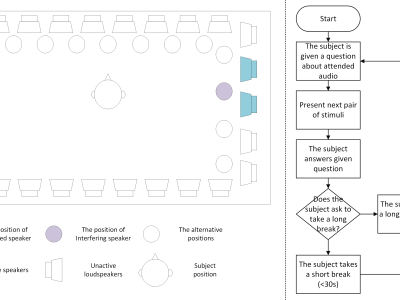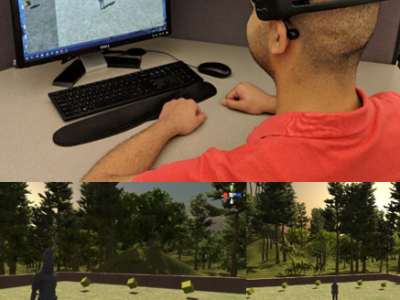
This is an auditory attention decoding dataset including EEG recordings of 21 subjects when they were instructed to attend to one of the two competing speakers at two different locations.
Unlike previous datasets (such as the KUL dataset), the locations of the two speakers are randomly drawn from fifteen alternatives.
All subjects have given formal written consent approved by the Nanjing University ethical committee before the experiment and received financial compensation upon completion.
- Categories:


